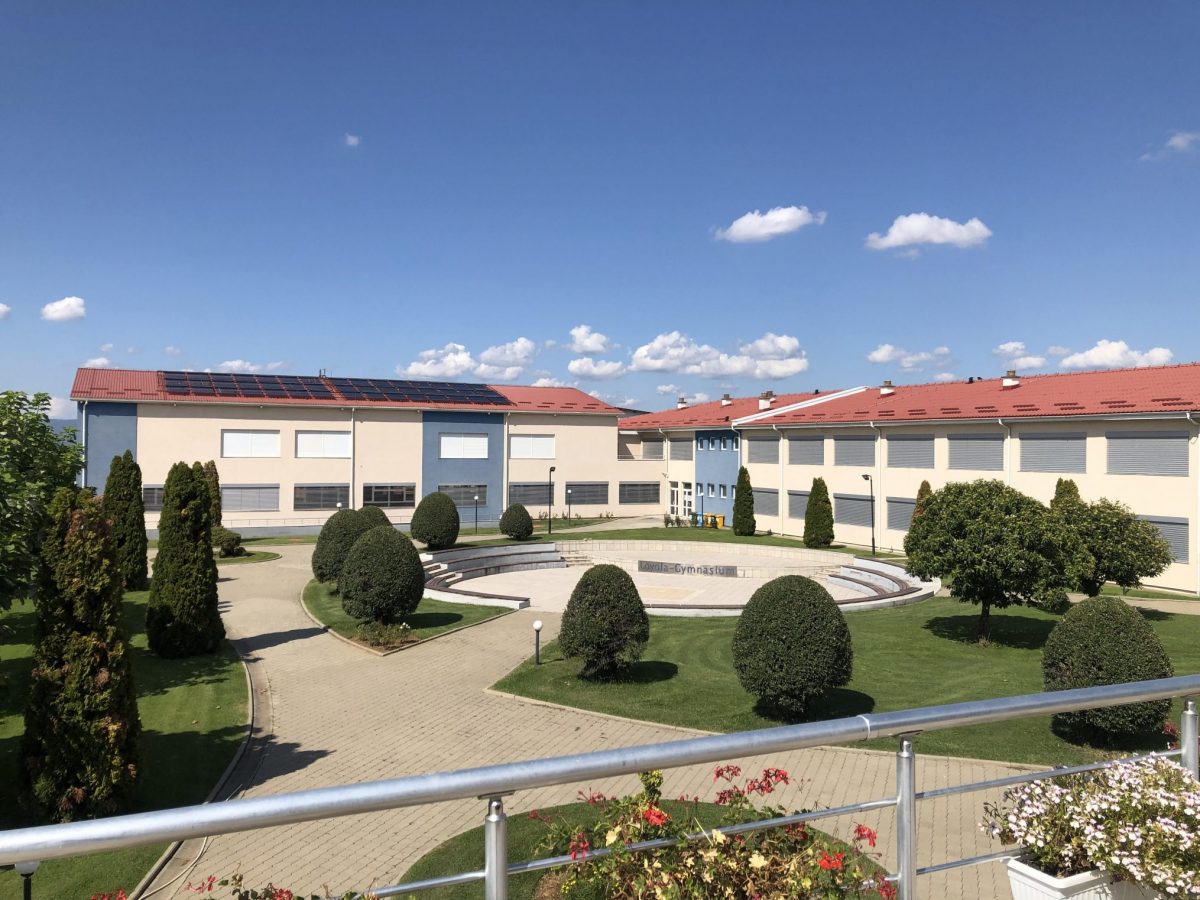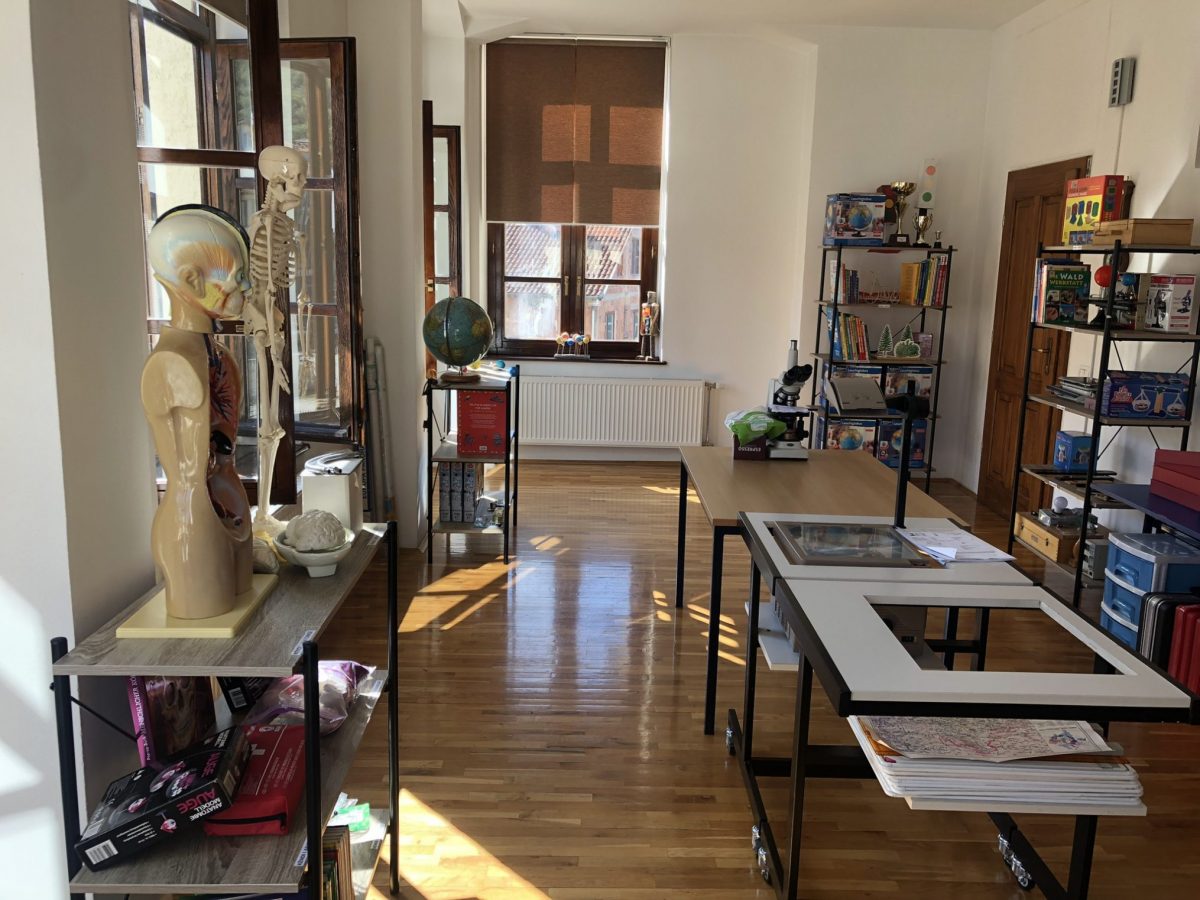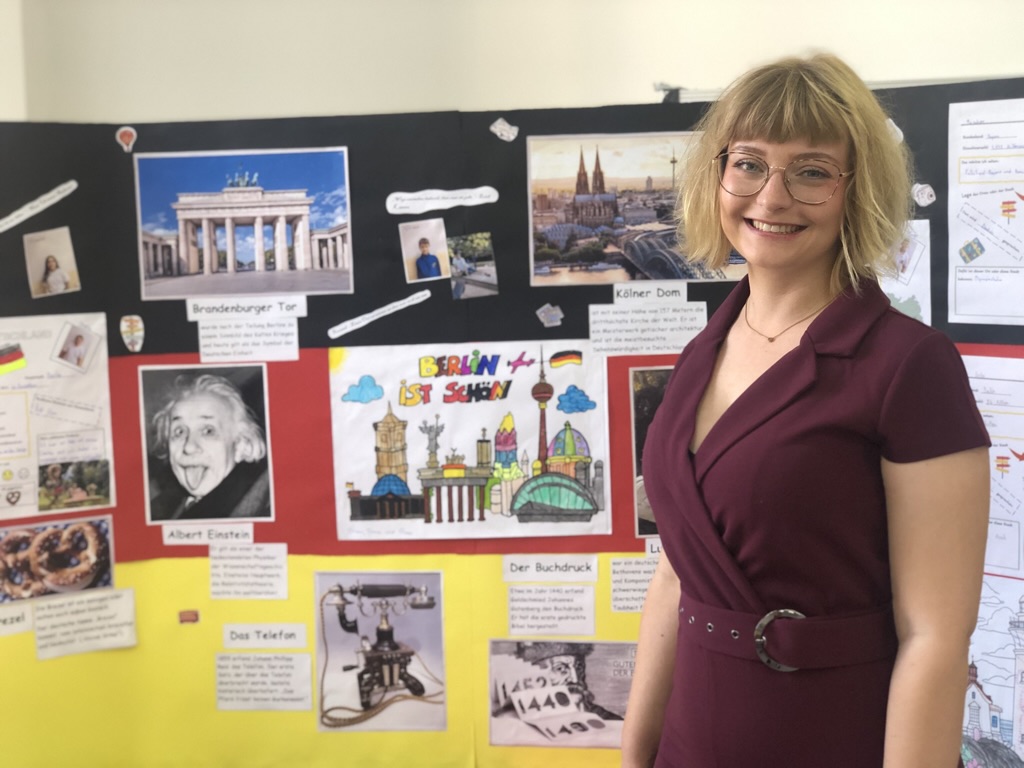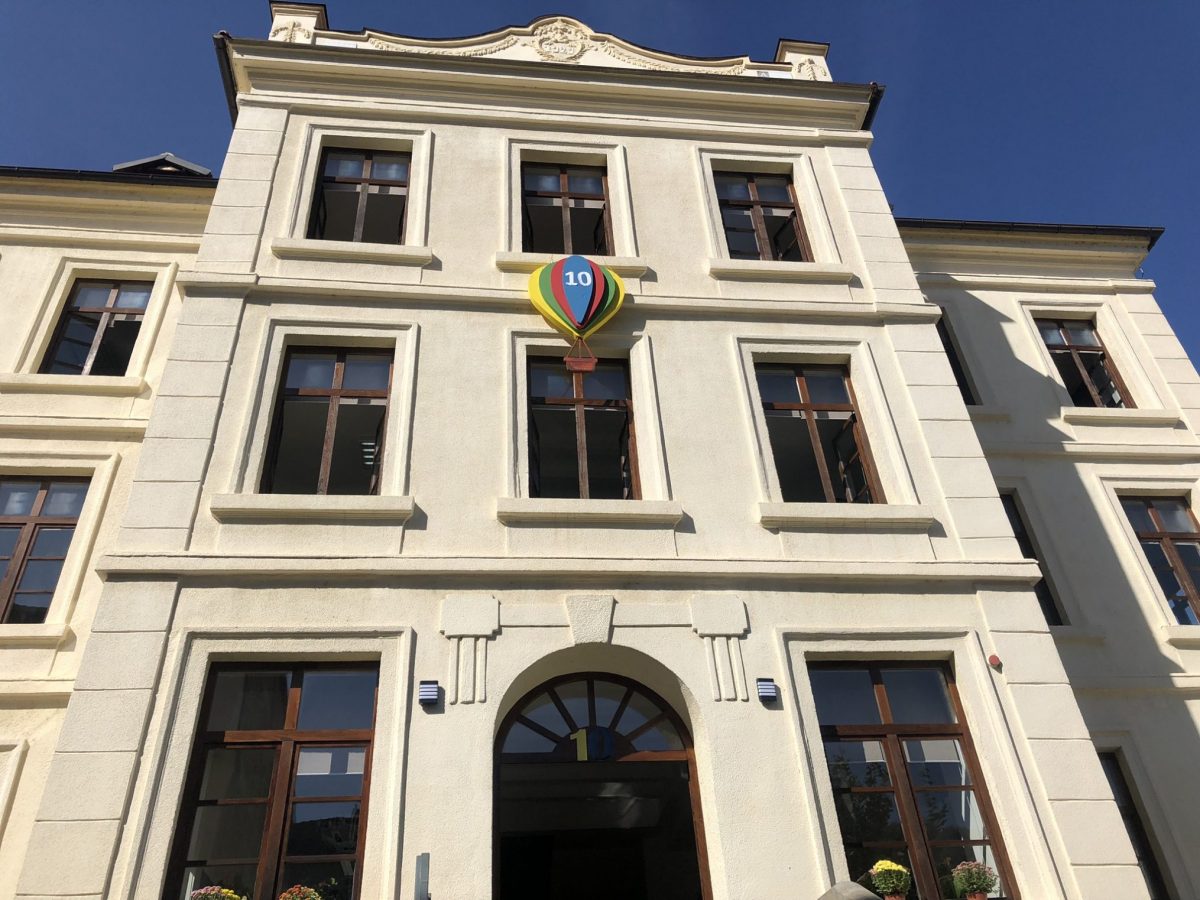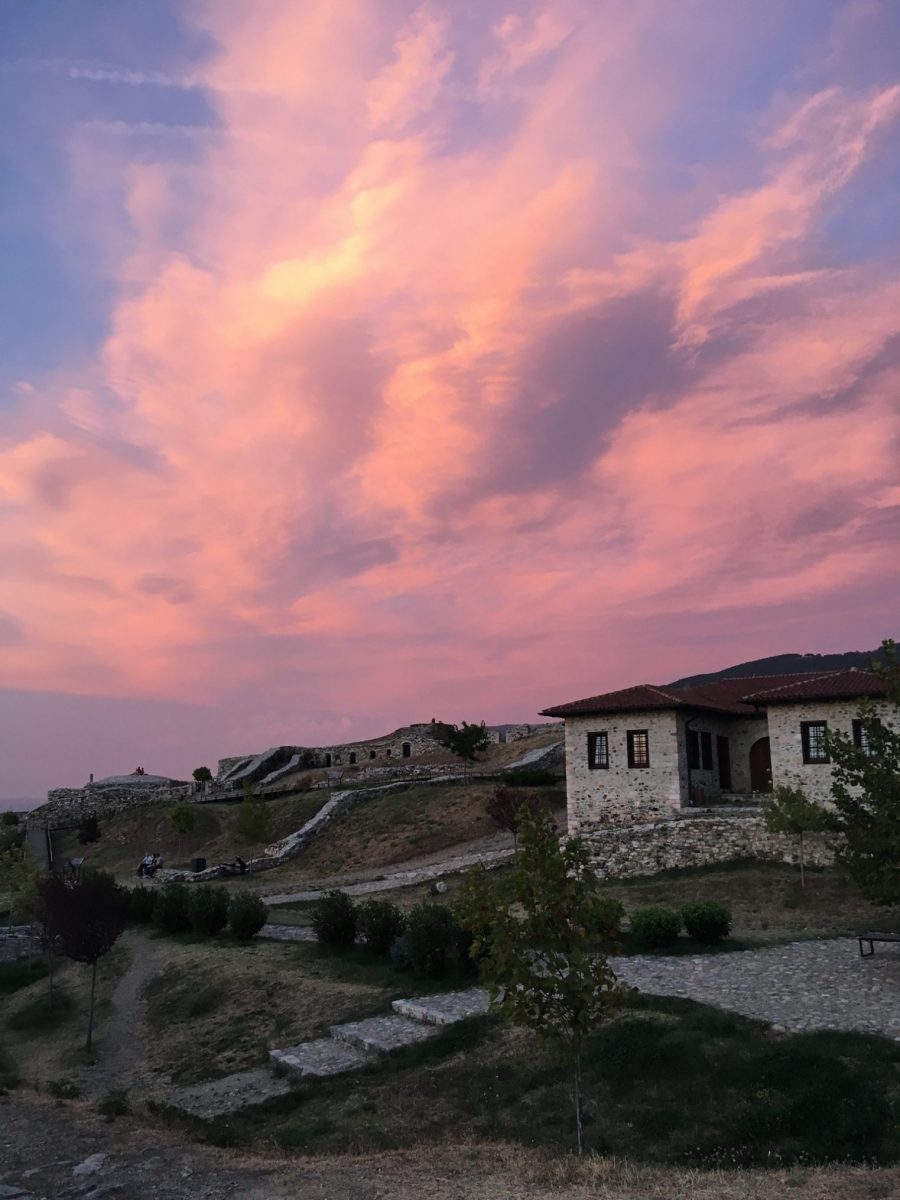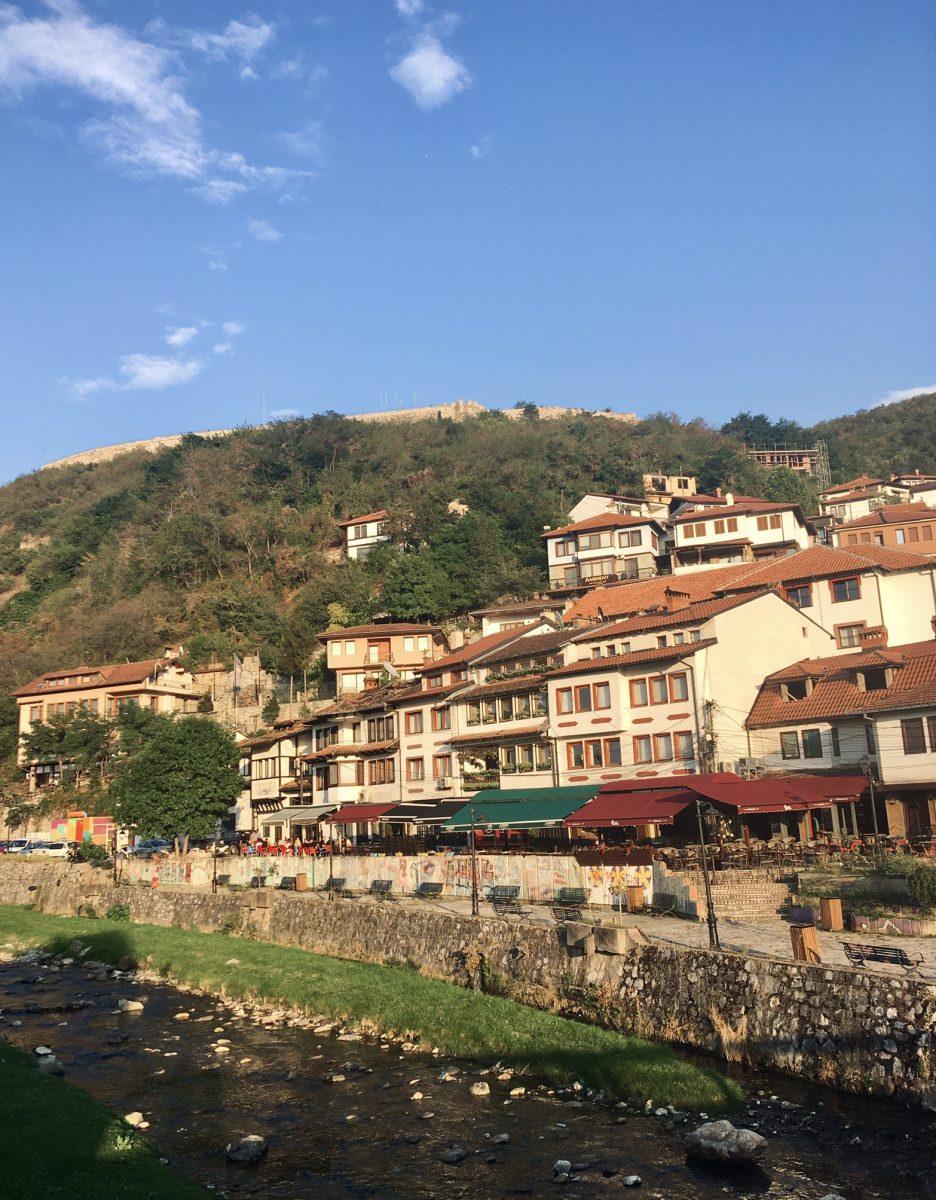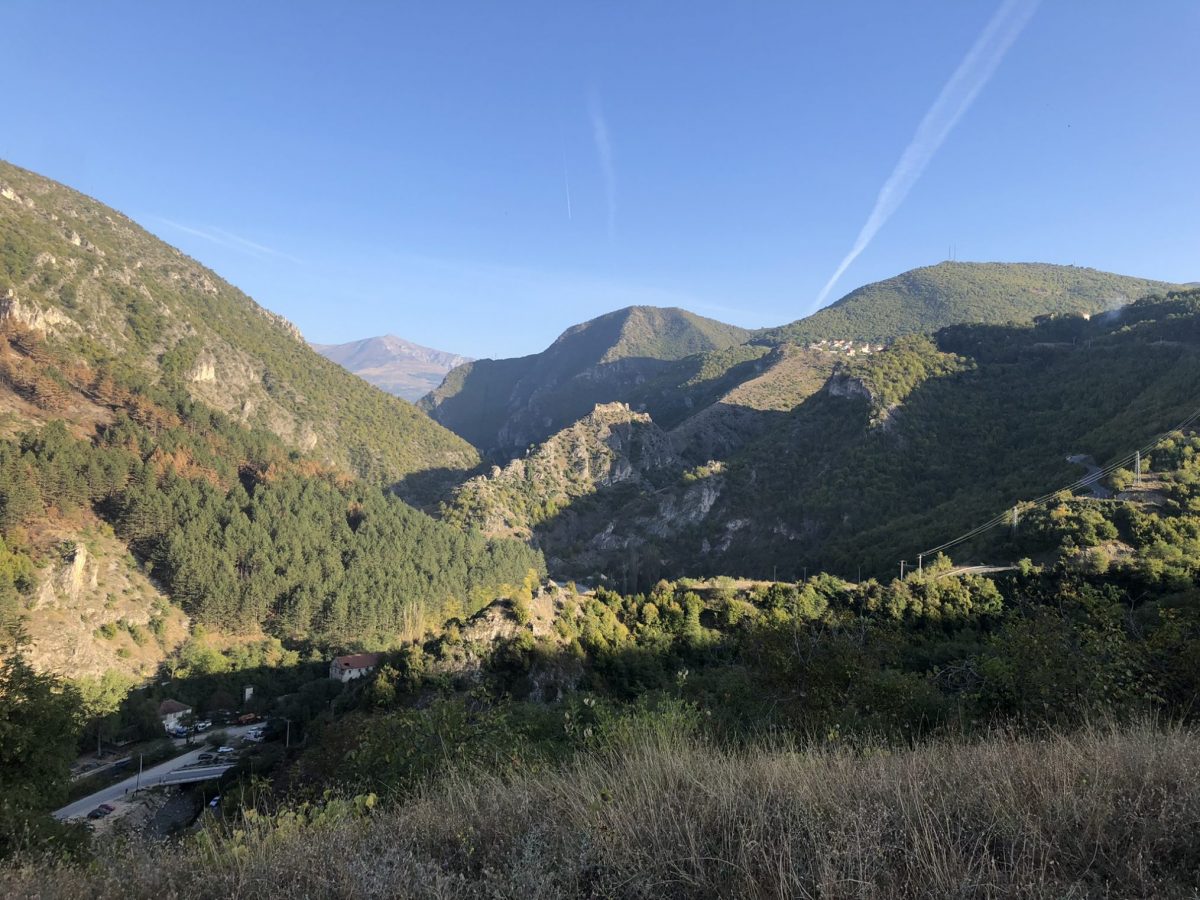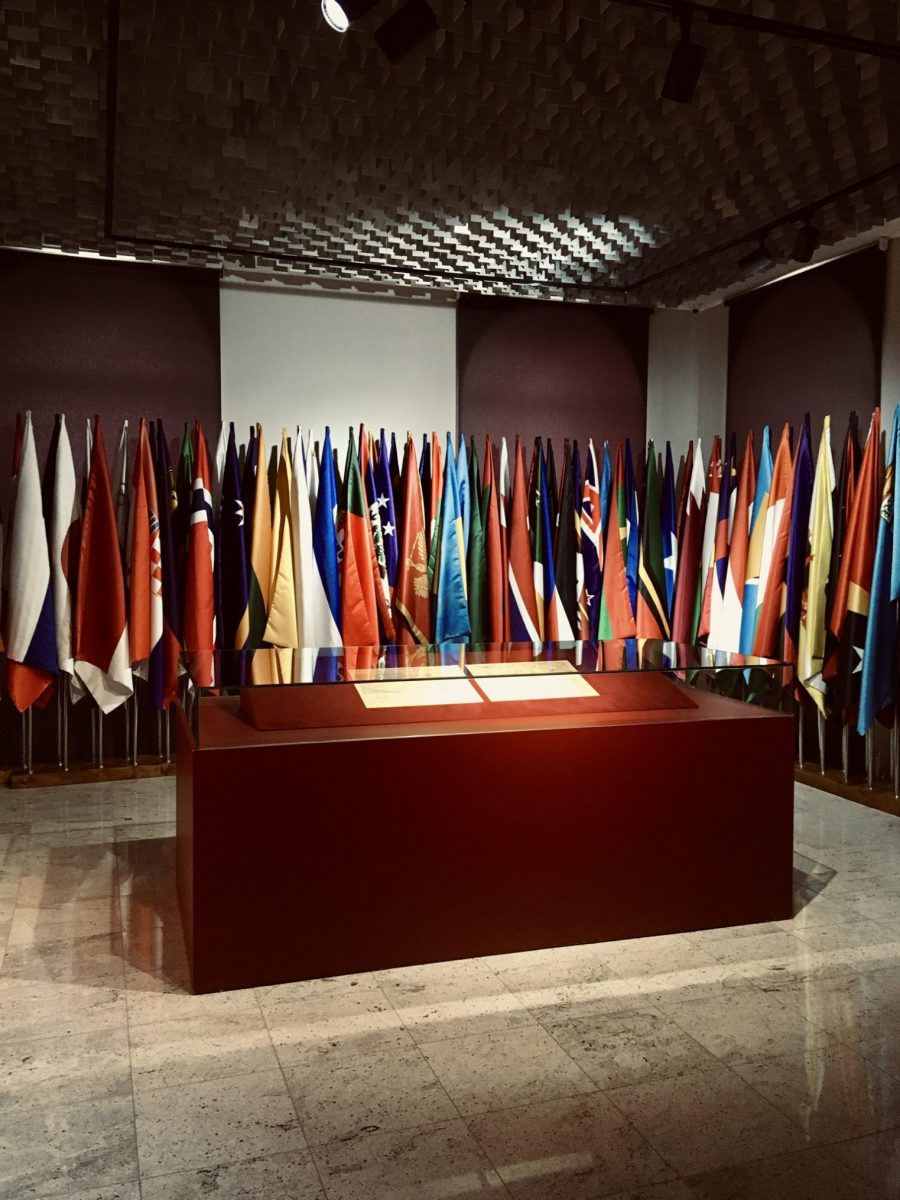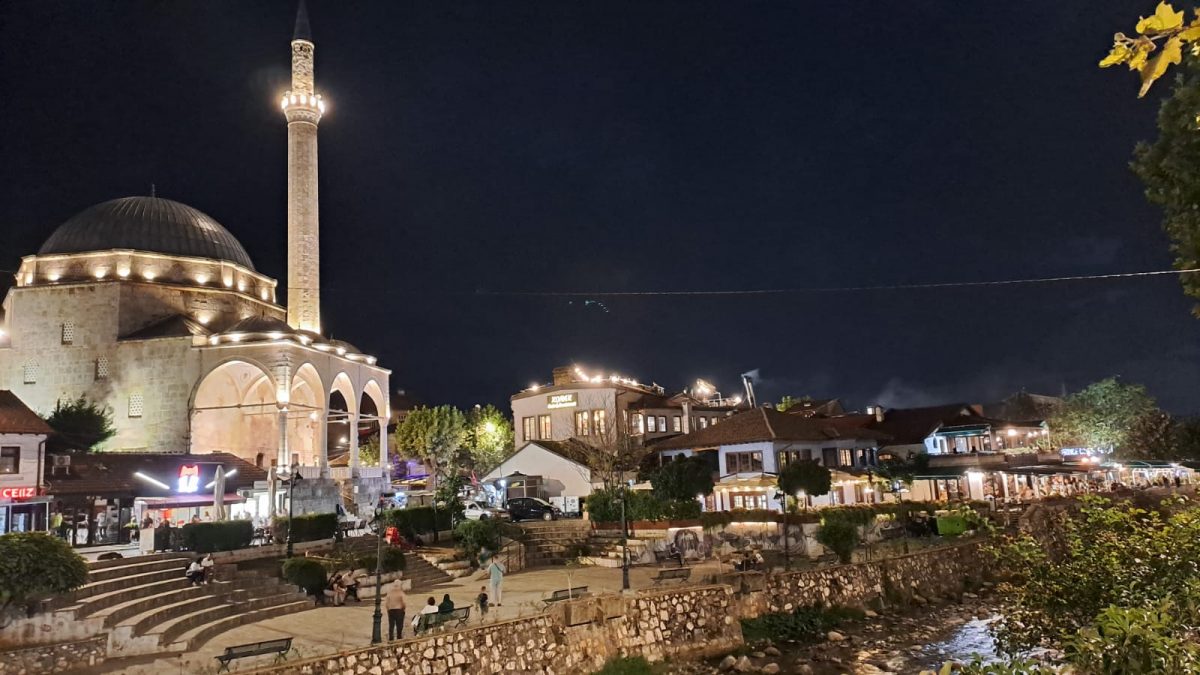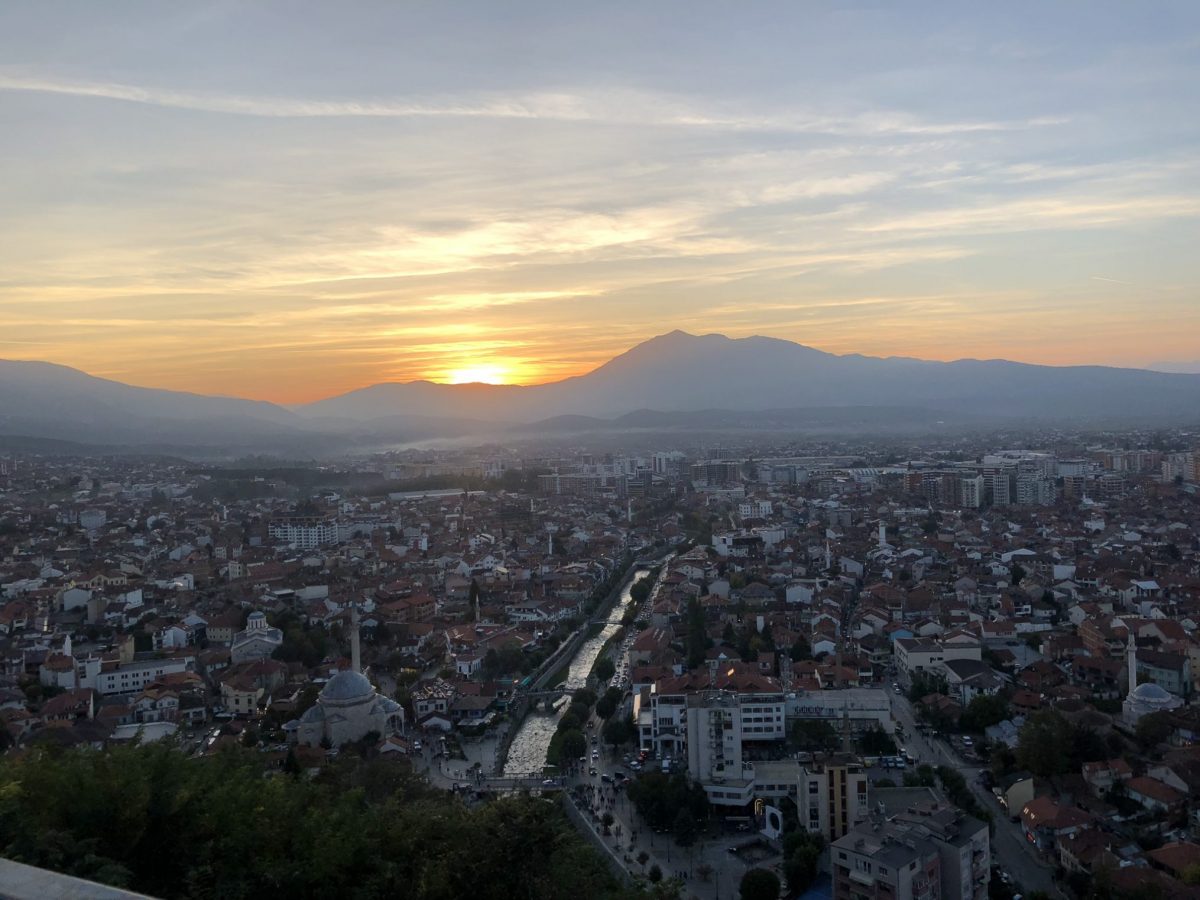Mail from … Kosovo Teacher Training student Michaela Görg tells us about her school internship abroad
General Information
This is where I live at the moment:
I currently live in Kosovo in the – as the locals say – most beautiful city of the country: Prizren.
That’s what I’m doing in Prizren:
Here in Prizren, I am doing an internship at the “Asociation Loyola-Gymnasium”, an educational project supported by an association from Germany. The association includes an elementary school, a grammar school, a boarding school, and a vocational training centre for training courses as a mechatronics technician.
Since I am in my third semester of the Master’s degree programme “Teacher Training Course: Grundschulen” at TU Braunschweig, I get to sit in on classes and teach at the elementary school most of the time. In my first week, I already had the opportunity to take over parts of a music lesson. Then in October, I was part of the musical programme for the open day of the elementary school. By now, I mostly plan the German lessons for the third to fifth grade and then carry them out myself.
My stay abroad takes…:
… three months, from mid-September to mid-December. I organised my internship myself, by visiting the school for their open day in April and introducing myself there. Relatively quickly after that, it was clear to me that I also wanted to get to know the everyday school life there.
That’s why I decided to go abroad:
I decided to go abroad because I absolutely wanted to get to know the school system of a different country and teach in it before I begin my preparatory service in Germany. With a direct comparison between the German and the Kosovan school systems, I can apply the experiences I have gained here to my teaching work at German elementary schools. At the same time, the insight into the culture will help me be more sensitive to certain class compositions later on with children whose country of origin might also be Kosovo.
It was also particularly important for me to be able to teach German as a foreign language. Teaching children from the age of eight a language that was previously completely unknown to them requires a lot of patience, motivation, and good ideas. The content from the DaF/DaZ study programme was particularly helpful in preparing and teaching the lessons.
Local life
This is how I live in Prizren:
I live in a guest apartment on the Campus of Loyola-Gymnasium. The boarding school for the pupils is located in the same building, so there is always something going on here. At the end of October, the boarding school teachers organised a really big Halloween party in the school auditorium. We are currently rehearsing the Christmas programme for the boarding school party before the Christmas holidays.
What makes teaching in Kosovo different from teaching in Germany?
Here at a Kosovan elementary school, the class composition is much more homogenous in contrast to elementary school classes in Germany, and lessons are often teacher-centred. The children follow the lessons very attentively and raise their hands a lot. After the lesson, the children frequently say goodbye to the teacher with a hug and thank them for the lesson. The schools in Kosovo generally place great value on mutual respect, tolerance and acceptance. There is even a separate subject for this. The teachers have a friendly relationship with one another, and help each other out in stressful situations. Many teachers take their job very seriously and see it as their life’s work to give children a better future through education.
Particularly typical for the country I’m staying at is:
Kosovan hospitality! Whether it was eating pita at the in-law’s garden, going on a swimming trip to the Albanian Adriatic, cooking ajvar (in sheer inconceivable amounts), or drinking plum brandy with the P.E. teacher – after just one week, I felt like I had been welcomed into at least three families.
That’s what I learned here in the first three days:
In the first three days, – aside from Kosovan hospitality – I learned, especially on the way to school, that road signs are completely overrated. Driving a car here in Kosovo is an art form where there is only one rule: Use! Every! Gap! And: Trust that people around you will see you, despite the narrow and confusing roads.
Another thing I quickly learnt is to listen carefully to the people here. Many Kosovars have experienced war, displacement and fleeing. Most of them are still unable to talk about it openly. But they want to be heard; they talk about the time they spent in Germany, Switzerland or Albania, about their deportation and about their family members in other European countries.
The biggest challenge during my stay has been …
The biggest challenge during my stay here is the heavy environmental pollution, which really affects me every day. Every day on my way to school, I see piles of rubbish on the side of the road. Due to the lack of a waste disposal system and the lack of structures in waste and wastewater management, the rubbish produced in the towns and villages usually ends up in the forests. The forests themselves are now being cut down on a grand scale in autumn and winter. However, people often also use old clothes, shoes or plastic for heating, which is why air pollution is very high here in the winter. The 60-year-old lignite-fired power plants in Pristina, the capital of Kosovo, are also a major contributor to the excessively high greenhouse gas emissions.
That’s what I will take home with me:
The openness of Kosovar people towards new things! And four kilograms of Ajvar.
Good to know
This is a local dish you definitely have to try:
Flia – the national dish of Kosovo. Flia is a type of stacked pancakes that is baked from both sides in a big round metal form with an equally big metal lid over an open fire, and afterwards molten butter is poured over it. The best Flia is from high up in the mountains, where it is still being prepared very traditionally. But the fruits and vegetables on the market here are also always fresh and very tasty.
What are the blunders to avoid in Kosovo?
If you ask for the way in Kosovo, you should be prepared for a concrete length specification to your requested destination. While taking a walk through the city, I had asked someone for directions to the next supermarket. He described the way to me in such a manner as if my destination was right around the corner, I would just have to go “a little bit” in one direction and then turn right. I walked for six kilometres.
This is a tip I give to other students who want to go abroad:
Be open to new experiences! A lot of the time, our own prejudices keep us from travelling to countries that are not yet well developed for tourism. Find out in advance from the Federal Foreign Office whether a country is safe, get in touch with locals, and don’t be afraid. Only when we understand how other cultures work, can we ensure peaceful coexistence in the long term.

